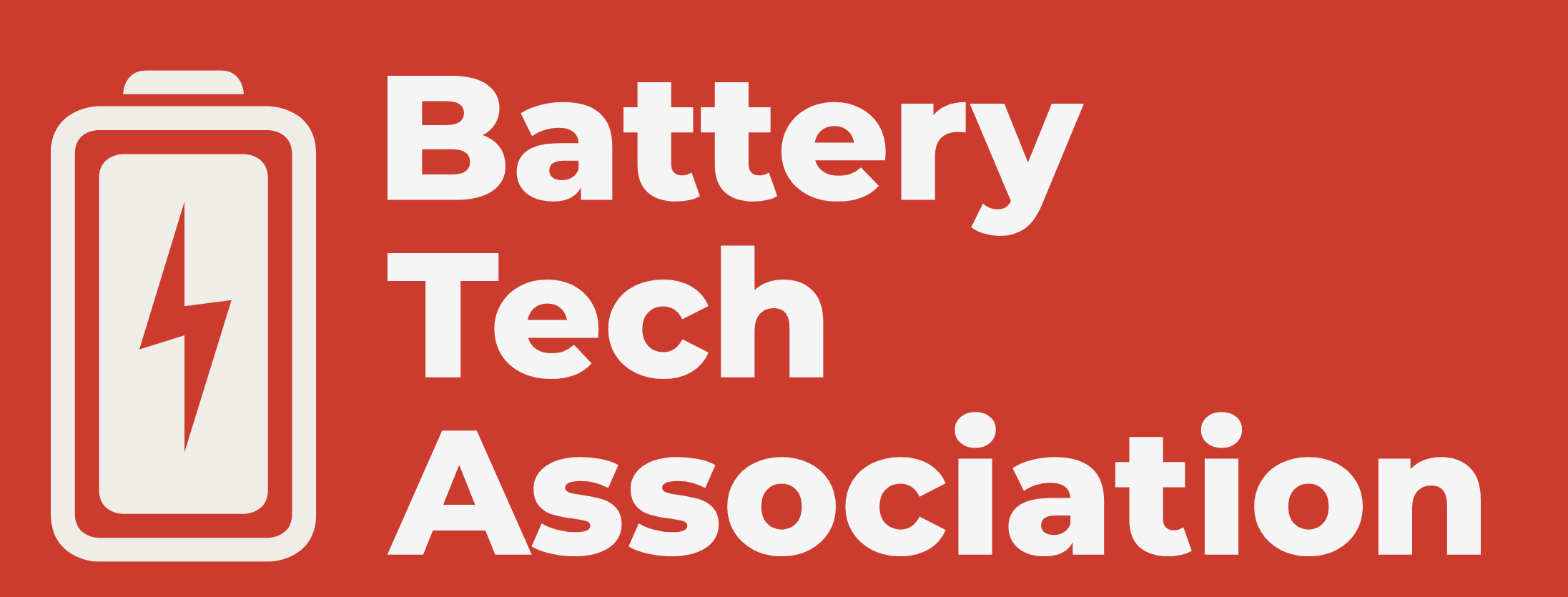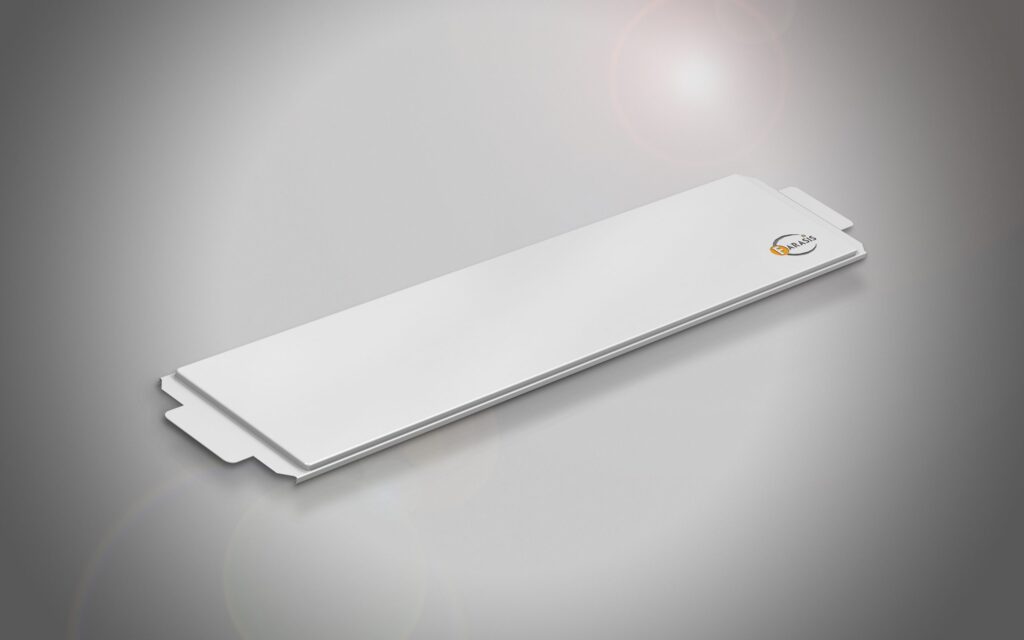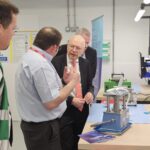The high-performance P73 and P79 cells have been submitted for testing to Batemo, the global technology leader in the development of simulation software for lithium-ion batteries. The P73 cell belongs to the first cell generation, while the P79 cell is an ultra high-performance variant of the fourth generation. The tested cells are among the most powerful lithium-ion battery cells on the market.
Nuertingen, May 14th, 2024 – Farasis Energy communicates the performance data of the battery technology clearly and transparently, as confirmed by the latest test results from Batemo.
Compared to other cells tested, the P73 and P79 cells perform particularly well in terms of gravimetric energy density in the Batemo Cell Explorer. The P73 cell achieved 294 Wh/kg, the P79 cell 323 Wh/kg. This makes the P79 cell the new record holder and underlines the innovative strength of Farasis Energy.

Customers who already want to use a comparable Gen 4+ pouch cell will find an alternative in the nearly identical P84, which differs in the number of layers, for example, and is already available for various applications. The pouch cells from Farasis Energy are characterized by their long range, fast-charging capability and particular suitability for weight-sensitive applications.
Specific testing procedures for valid results
Batemo, leading developer of simulation software for lithium-ion batteries based in Karlsruhe (Germany), opened an independent battery laboratory in 2018, whose test results are publicly available on its website.
In collaboration with Farasis Energy, Batemo opened the cells to create a model and analyzed the electrical, chemical, mechanical and thermodynamic components. In addition to a comprehensive characterization of the full cell, experimental cell measurements of the individual electrodes, impedance spectroscopy and microstructural investigations using a scanning electron microscope (SEM) and energy dispersive X-ray spectroscopy (EDX) were also used. The resulting material parameters form the basis of the Batemo simulation model. The global validity with maximum model accuracy was verified by constant current and pulse measurements in the charging and discharging direction for the entire operating range at cell temperatures from -20 °C to 58 °C and currents of up to over 600 A.
Solid technology roadmap for transparency and innovative quality
“We want to work with our partners to develop the best solutions for their customer applications. An ambitious technology roadmap and independently validated benchmarks for the performance of our products give our customers planning security – today and in the future”, says André Gronke, Head of Overseas Product Development.
In the development of high-performance cell chemistries, Farasis Energy follows a specially developed roadmap that looks around 10 years into the future. In doing so, the company relies on technology trends as well as series experience and test results. “Innovation and experience are our strengths. We have already developed a module concept for the fourth generation of cells that prevents thermal propagation, thermal runaway of the module in the event of damage, in the latest generation of cells (Generation 4). These cells therefore not only deliver the best energy density, but also offer absolute safety during integration at system level”, explains Gronke.
About Farasis Energy
Farasis Energy is a leading developer and manufacturer of high-performance battery technology and pouch cells for electric mobility and other sustainable power storage solutions. Founded in 2002 by Dr. Keith Kepler and Dr. Yu Wang in California, the company now operates research and development centers in China, Germany, and the United States. There are currently two production facilities in Ganzhou and Zhenjiang (China), with further production facilities being built by 2025, thereby increasing total planned capacity to 145 GWh/a. A new battery plant is also being built in Gemlik (Turkey) with the establishment of the Siro joint venture between Turkish electric car manufacturer Togg and Farasis Energy, which produces modules and packs since March 2023. With more than twenty years of experience in research and development and with nearly 300 patents, Farasis Energy is shaping the future of electric mobility as a pioneer. In addition to Togg, its major strategic partners also include companies such as Mercedes-Benz and Geely.
For further information please visit www.farasis-energy.com.
Press contact
Press Office Farasis Energy Europe:







